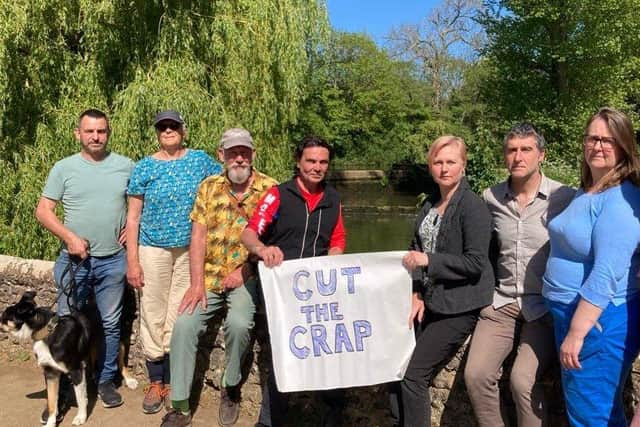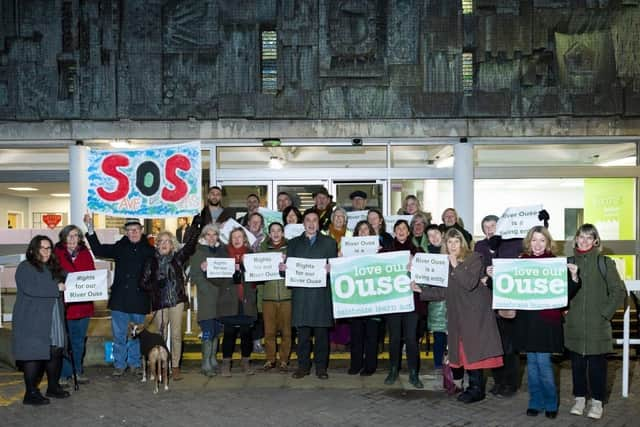Toxic chemicals found in Lewes District waterways
and live on Freeview channel 276
The chemicals do not break down in the environment, build up in the body and may be toxic. The local discoveries were made as part of a major mapping project across the UK and Europe which uncovered high levels of per- and polyfluoroalkyl substances (PFAS). The River Ouse and Glynde Reach have been directly affected.
PFAS are a family of about 10,000 chemicals valued for their non-stick and detergent properties, which have made their way into water, soils and sediments from a wide range of consumer products, firefighting foams, waste and industrial processes.
Advertisement
Hide AdAdvertisement
Hide AdHundreds of these PFAS are used commercially across many sectors of industry and society. There is increasing evidence of the occurrence of PFAS in the environment and, once in the environment, PFAS are persistent. This means we will continue to detect them for many years, despite restrictions; and there is growing concern regarding the risks to human health.


Green Party Campaigner and water activist Mark Slater said “Whilst levels are not as high as in some hotspots this new data is deeply concerning. These chemicals have been linked with human health problems, such as kidney disease, but also are extremely damaging to nature and wildlife. Rivers directly affected include Glynde Reach and the Ouse, and ultimately, of course, these non-biodegradable chemicals end up in the sea - and in our food chain.”
Green Party Councillor and Parliamentary Spokesperson Emily O’Brien said: “Southern Water’s own figures already show unacceptable levels of untreated wastewater including raw sewage discharging from several local sewage works. This new research shows that there is additional chemical pollution which, quite literally, will remain in our environment for ever. People have had enough. The government has consistently failed to protect water quality. We need to see proper regulation and we need to bring water companies back into public hands”
The discovery of high local PFAS levels came in the same week that the Green Party motion to recognize the ‘Rights of Rivers’ for the first time in England was passed by Lewes District Council. As a result of a previous Green Party council motion in 2022, Southern Water is now asked about the impact of development on waste water treatment works, a step which has since been followed by at least 10 other English councils including Wealden District Council.
Advertisement
Hide AdAdvertisement
Hide Ad

A Defra spokesperson said: “UK drinking water standards are of a very high standard, among the best in the world. Water companies are required to carry out regular risk assessments and sampling for PFAS to ensure the drinking water supply remains safe.
“PFAS chemicals are in the environment because they have been used widely in products and are extremely persistent. Since the 2000s we have taken action to increase monitoring and support a ban or highly restrict specific PFAS both domestically and internationally. We continue to work with regulators to further understand the risks of PFAS and implement measures to address them.”
